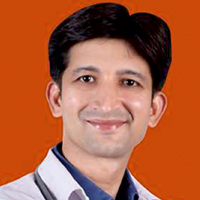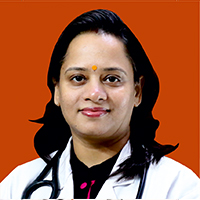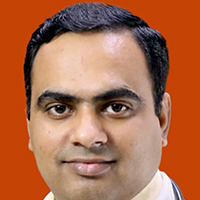

Successful Treatments
Clinics
Doctors
What is Hyperglycemia?
Hyperglycemia or high blood sugar, is a condition that occurs when there is too much glucose in the bloodstream. This happens for multiple reasons although it is most commonly associated with diabetes, specifically type 1 and type 2 diabetes. When your body doesn't produce sufficient insulin - a hormone which helps glucose get into your cells for energy, or if your body cannot use insulin correctly, you have Hyperglycemia.
The general symptoms of this condition include frequent urination, blurred vision, fatigue, and increased thirst. If untreated, it could cause severe health issues such as nerve damage, kidney issues and problems like diabetic coma. Bad diet, insufficient exercise, stress, or illness can also trigger this condition.
Preventing and managing Hyperglycemia requires understanding and controlling your blood glucose levels with a nutritious diet, frequent monitoring and following medical advice. Anybody with signs of high blood sugar should immediately consult with a certified ayurveda doctor to get appropriate treatment.
Common Causes of Hyperglycemia
High blood sugar is a challenging health issue for people, particularly for those with diabetes. Knowing what causes this condition is important to control it and avoid complications.
Diabetes: The main reason for Hyperglycemia is diabetes - exclusively type 1 and type 2 diabetes. In this condition, the body does not produce enough insulin or cannot use up the insulin it makes.
Poor Diet: Foods loaded with sugar or carbs may cause spikes in blood glucose. This is particularly essential in postprandial Hyperglycemia, when blood glucose increases after consuming food.
Physical Inactivity: Insufficient exercise could result in weight gain and improved insulin resistance, a condition wherein body cells don't respond usually to insulin.
Stress: Physical as well as emotional stress may induce stress Hyperglycemia. The human body reacts by releasing stress hormones which could raise blood sugar.
Medication: Certain medicines, including steroids, bring about steroid-induced Hyperglycemia by affecting glucose regulation within the body.
Illnesses: Blood sugar can temporarily spike with infections and illnesses. This happens often in diabetic Hyperglycemia during sickness.
Hormonal Changes: Hormonal changes that affect the effectiveness of insulin can also result in this condition.
Signs and Symptoms of Hyperglycemia
Hyperglycemia is a condition that has many different symptoms. Being aware of these could help their early detection and management, reducing the risk of severe complications from this condition.
Symptoms
Frequent Urine (Polyuria)
The increased need to urinate is among the earliest symptoms of Hyperglycemia. High blood sugar levels make it tougher for the kidneys to filter and soak up extra sugar, causing more frequent urination.
Increased Thirst (Polydipsia)
Frequent urination results in dehydration and a persistent thirst.
Fatigue
High blood sugar can leave you feeling incredibly tired and weak. This happens because body cells can not use glucose for energy because of insufficient insulin.
Blurred Vision
Excess sugar in the blood can pull fluids from tissues such as the lenses of your eyes, affecting your focus.
Slow Wound Healing
High blood sugar can impact blood circulation and damage nerves, slowing the healing of wounds and cuts.
Frequent Infections
Hyperglycemia could weaken the immune system and make it easier to get infections - typically in the urinary tract or the skin.
Weight Loss or Gain
Unexpected weight change may include weight loss if the body can not use glucose for energy and begins metabolising fat and muscle, or weight gain because of an increased appetite.
Headaches
A common symptom of varying blood sugar is headaches during Hyperglycemia.
Nausea or Vomiting
In case Hyperglycemia gets severe, it may cause nausea or even vomiting.
Do you have any of the following symptoms?
- Frequent urination, more than usual
- Increased thirst, drinking more fluids than normal
- Feeling unusually tired or fatigued without clear reason
- Blurred vision that is not explained by other eye conditions
- Wounds, cuts, or sores that heal slowly
- Frequent infections, especially skin or urinary tract infections
- Unexplained weight loss or gain
- Experiencing headaches regularly
Jiva Ayunique™ Treatment Philosophy - A Holistic Approach to Hyperglycemia
Jiva Ayurveda offers advanced Ayurvedic treatment for Hyperglycemia by combining ancient Ayurvedic knowledge and the latest advances in modern medicine to achieve the desired results. The treatment plans are customised to target the very root causes of the disease, and instead of just treating symptoms, they focus on holistic healing, balance and stability in totality.
Core Principles of the Jiva Ayunique™ Treatment Protocol
Personalised Ayurvedic Medicines: Personalised herbal prescriptions to restore the doshas and normalise the mood.
Yoga, Meditation & Mind-Wellbeing: Soothing practices that help to induce relaxation and emotional wellness.
Ayurvedic Therapies: Panchakarma, massages, and other therapies to cleanse the body of toxins and stabilise the psycho-emotional centres.
Nutritional and Lifestyle Modifications: Expert consultation with suggestive changes in diet and lifestyle for optimal results.
Ayurvedic Medicines for Hyperglycemia
Ayurveda offers a range of natural remedies that can help manage Hyperglycemia, or high blood sugar levels. These herbal formulations target the underlying causes of high blood sugar and aim to restore balance within the body.
Bitter Melon (Karela): Known for its distinctive bitter flavour, bitter melon is highly regarded in Ayurveda for its ability to lower blood glucose levels. It acts by increasing insulin secretion and promoting carbohydrate metabolism.
Fenugreek (Methi): These seeds are beneficial for controlling glucose levels as they contain fibre and other chemicals that slow down the digestion process and the body's absorption of carbohydrates and sugar.
Cinnamon: Commonly used as a spice, cinnamon can help improve insulin sensitivity and lower blood sugar levels. It mimics insulin effects and increases glucose transport into cells.
Gymnema Sylvestre (Gurmar): This herb is known as the 'sugar destroyer' because it helps reduce sugar cravings by making sweet foods taste less appealing. It also helps in regenerating pancreas cells that produce insulin.
Amla (Indian Gooseberry): Rich in Vitamin C, amla can regulate carbohydrate metabolism, which ensures reduced blood sugar levels. It also helps in proper absorption of insulin leading to a drop in blood sugar in people with diabetes.
Turmeric (Haldi): Turmeric has anti-inflammatory properties and can help Hyperglycemia patients. The active ingredient in turmeric, i.e, curcumin helps reduce insulin resistance and improves blood glucose management.
Neem: Neem has been called a miracle herb, and is used for Hyperglycemia. It improves insulin receptor sensitivity and also helps with blood circulation, reducing blood glucose levels.
Triphala: A staple in Ayurvedic medicine, Triphala is a mix of 3 fruits which stimulate the body and help digestion. Additionally, it helps control blood sugar by promoting a steady release of sugar into the bloodstream.
Shilajit: Fulvic acid-rich Shilajit lowers blood glucose levels and enhances sugar tolerance. It promotes the pancreatic function, which is necessary for insulin production.
FAQs
Non-diabetic Hyperglycemia might be brought on by severe illnesses, stress, or some medications which disrupt regular glucose metabolism.
Regular monitoring is essential. Check your blood sugar four times daily in case you have fluctuating levels or if advised by your doctor.
Proper management by diet, exercise and medications can manage Hyperglycemia; however, regular monitoring is essential to maintain healthy levels.
No, Hyperglycemia is basically high blood glucose - a sign of diabetes although it may happen in a number of other diseases also.
Concentrate on lower glycemic index foods, fibre, and low sugars and refined carbs.
Ayurveda can help manage Hyperglycemia with herbs, diet and lifestyle changes but a complete cure depends on individual health status.
Ayurvedic remedies are safe when used under the direction of a licensed Ayurvedic practitioner but always talk to an expert.
Stress can increase hormone levels (cortisol and adrenaline) and raise blood sugar.
Yes, regular physical exercise reduces blood sugar levels by raising insulin sensitivity and boosting glucose metabolism.
Top Ayurveda Doctors
Our Happy Patients
Home Remedies
Related Disease
- Ayurvedic Treatment for Obesity
- Thyroid Treatment In Ayurveda
- Ayurvedic Treatment for Diabetes
- Ayurvedic Treatment For Type 1 Diabetes
- Ayurvedic Treatment for Hypoglycemia
- Ayurvedic Treatment for Hyperglycemia
- Get Ayurvedic Treatment For Prediabetes
- Ayurvedic Treatment for Diabetic Neuropathy
- Ayurvedic Treatment for Gynecomastia
- Ayurvedic Treatment for Hernia
- Ayurvedic Treatment for Gangrene
- Ayurvedic Treatment for Weight Loss
Latest Blogs
- 10.6 से 6.2 तक की गिरावट—Ayurveda ने Diabetes Management में कैसे दिखाई ताकत
- Disk Bulge की वजह से चलना बंद हो गया था—Ayurveda ने कैसे दोबारा खड़ा होने की ताकत दी
- High Diabetes रिपोर्ट ने डरा दिया था—Ayurveda ने बिना आजीवन औषधियाँ के दिखाया नया रास्ता
- 65 की उम्र में भी नींद नहीं आती थी—जीवा आयुर्वेद की Video Consultation ने कैसे दी सुकूनभरी नींद
- Migraine ने पढ़ाई और काम दोनों रोक दिए थे—Personalised Ayurvedic Treatment ने कैसे बदली ज़िंदगी
- खड़े रहना मुश्किल, हाथ सुन्न, लगातार दर्द—Ayurveda ने कैसे बदली Arthritis की कहानी
- 28-Year-Old की Struggle: Skin Problems से लेकर Psoriasis Relief तक की Ayurvedic Journey
- 100 दिनों में Diabetes Reverse! Ayurveda ने कैसे 8.5 से 5.5 तक गिराया HbA1c
- सालों पुराने Knee Pain में Painkillers भी हार गए—Ayurveda ने कैसे दिलाया सच्चा आराम
- 74 साल की उम्र में भी Osteoporosis Pain से मिली राहत—Ayurveda ने कैसे बदली ज़िंदगी
- जब चलना मुश्किल हो जाए और डॉक्टर Operation कहें—Jivagram का Ayurveda कैसे बदल देता है ज़िंदगी
- Arthritis ने 15 साल जीवन रोक दिया था—Ayurveda ने कैसे फिर से चलने की उम्मीद जगाई
- 67 की उम्र में भी घुटनों का ऑपरेशन टला—Ayurveda ने कैसे फिर से चलने की ताकत दी?
- 6 साल लंबी Infertility की लड़ाई और हर उम्मीद टूट चुकी थी—आयुर्वेद ने कैसे दिखाई नई रोशनी?
- 10 साल पुराने घुटने और हाथ के दर्द से मिली राहत: जानिए कैसे आयुर्वेद ने फिर से चलने-फिरने की ताकत दी
- क्या वैरिकोज़ वेन्स और DVT एक-दूसरे से जुड़े हैं? आयुर्वेद बताता है असली फर्क
- क्या त्वचा पर कुछ हिस्सों का अचानक रंग हल्का होने लगना Hypopigmentation है या Vitiligo? आयुर्वेदिक भेद समझें
- क्या धब्बों के आसपास खुजली या हल्की जलन Vitiligo flare का संकेत है? आयुर्वेदिक दृष्टि से समझें
- क्या रसायनिक उत्पाद, रंग-बिरंगे क्रीम या फ्रेगरेंस त्वचा पर दाग बढ़ा सकते हैं? Vitiligo में त्वचा-संवेदनशीलता आयुर्वेद से जानें
- क्या परिवार में पहले से Vitiligo होने पर बच्चों में इसका खतरा बढ़ जाता है? आयुर्वेदिक कारण समझें
Ayurvedic Doctor In Top Cities
- Ayurvedic Doctors in Bangalore
- Ayurvedic Doctors in Pune
- Ayurvedic Doctors in Delhi
- Ayurvedic Doctors in Hyderabad
- Ayurvedic Doctors in Indore
- Ayurvedic Doctors in Mumbai
- Ayurvedic Doctors in Lucknow
- Ayurvedic Doctors in Kolkata
- Ayurvedic Doctors in Patna
- Ayurvedic Doctors in Vadodara
- Ayurvedic Doctors in Ahmedabad
- Ayurvedic Doctors in Chandigarh
- Ayurvedic Doctors in Gurugaon
- Ayurvedic Doctors in Jaipur
- Ayurvedic Doctors in Kanpur
- Ayurvedic Doctors in Noida
- Ayurvedic Doctors in Ranchi
- Ayurvedic Doctors in Bhopal
- Ayurvedic Doctors in Ludhiana
- Ayurvedic Doctors in Dehradun









































